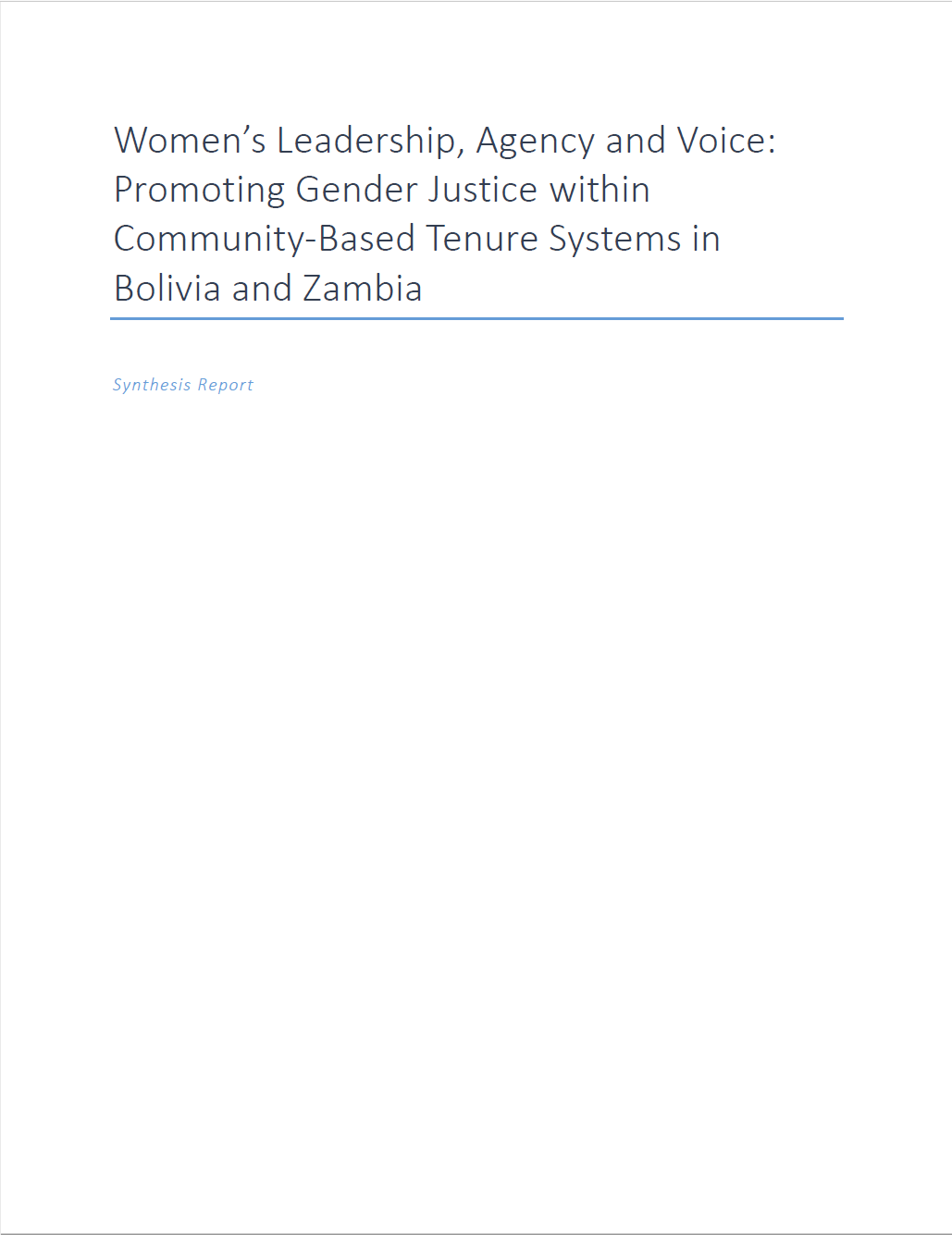Date: May 24, 2017
Land tenure security has become a major focus of donors, policy-makers, and the media in the past ten years, as land and forest resources are under a series of socio-economic and environmental pressures and related demands. How women gain access to and maintain control over land and forest resources in this dynamic environment depends both on existing institutional frameworks and on efforts to promote gender justice within customary tenure systems.
This report synthesizes research findings on gender dynamics and the implications for gender justice in community-based tenure systems in Zambia’s Eastern Province and two Bolivian TCOs (Tierra Comunitaria de Origen/Native Community Land). It highlights how women’s leadership and mobilization for access to resources differ, how access is conditioned by different levels of power and authority as well as relationships with other local, regional and national actors.

